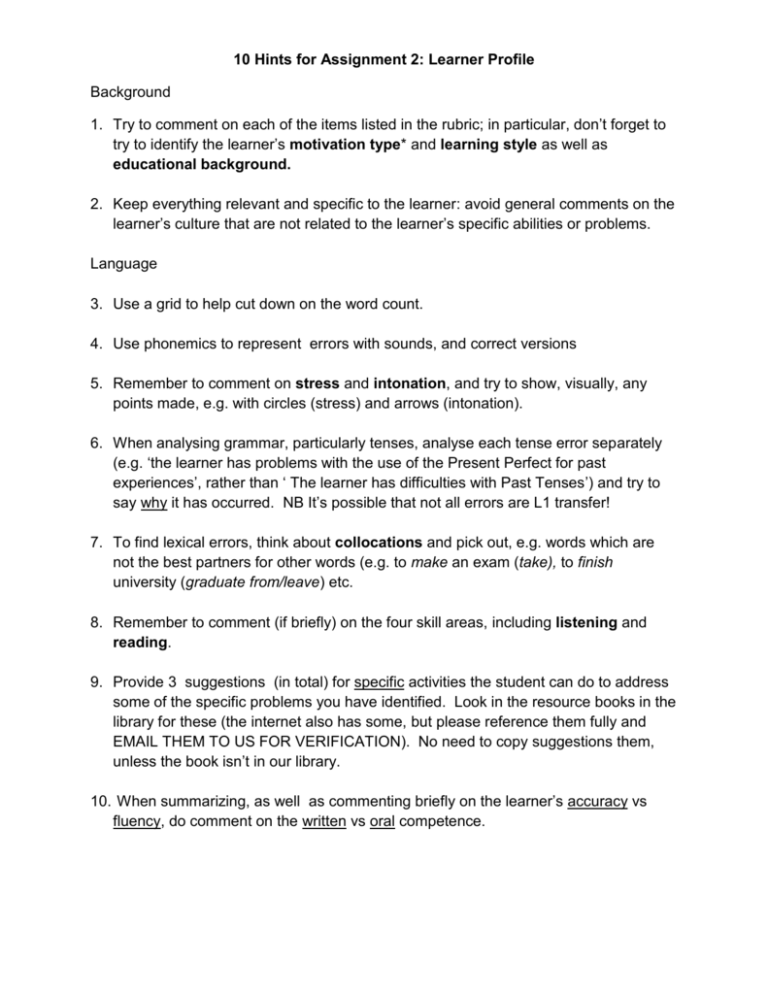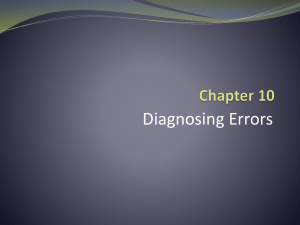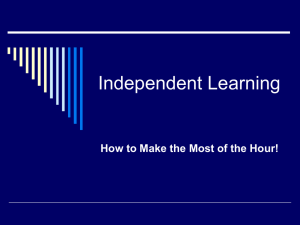10 Hints for Assignment 2: Learner Profile Background Try to
advertisement

10 Hints for Assignment 2: Learner Profile Background 1. Try to comment on each of the items listed in the rubric; in particular, don’t forget to try to identify the learner’s motivation type* and learning style as well as educational background. 2. Keep everything relevant and specific to the learner: avoid general comments on the learner’s culture that are not related to the learner’s specific abilities or problems. Language 3. Use a grid to help cut down on the word count. 4. Use phonemics to represent errors with sounds, and correct versions 5. Remember to comment on stress and intonation, and try to show, visually, any points made, e.g. with circles (stress) and arrows (intonation). 6. When analysing grammar, particularly tenses, analyse each tense error separately (e.g. ‘the learner has problems with the use of the Present Perfect for past experiences’, rather than ‘ The learner has difficulties with Past Tenses’) and try to say why it has occurred. NB It’s possible that not all errors are L1 transfer! 7. To find lexical errors, think about collocations and pick out, e.g. words which are not the best partners for other words (e.g. to make an exam (take), to finish university (graduate from/leave) etc. 8. Remember to comment (if briefly) on the four skill areas, including listening and reading. 9. Provide 3 suggestions (in total) for specific activities the student can do to address some of the specific problems you have identified. Look in the resource books in the library for these (the internet also has some, but please reference them fully and EMAIL THEM TO US FOR VERIFICATION). No need to copy suggestions them, unless the book isn’t in our library. 10. When summarizing, as well as commenting briefly on the learner’s accuracy vs fluency, do comment on the written vs oral competence. Assignment 2: 1 2 Learner Profile Task Select a student from your TP group. In threes record an interview of about 10 minutes with the student and take two pieces of written work (about 100 – 250 words for each depending on the student level). Then write your assignment separately! Describe as briefly as possible the learner’s learning background (including language learning experiences) cultural background, preferred learning style motivation for learning English in the short and long-term - try to decide type of motivation ( no more than 400 words) 3 Describe as concisely as possible the learner’s problems with: Pronunciation: 3 of the student’s main problems with sounds the student’s intonation and stress patterns – mark stress and use arrows for intonation. Grammar Lexis 3 specific areas of grammatical weakness – use the student’s interview and the written work to identify these 2 problems (look at words choice, e.g. in collocations) Skills problems you have observed with each of the following: listening, speaking reading and writing For each of the above, give and analyse specific examples and try to suggest why the student has made the error. Use a grid, as in the example assignments (in the green folder (ground floor) or black folder (basement). Remember to acknowledge any sources you use! (about 500 words) 4. As a result of your analysis you should assess and describe the reasons for the student’s overall accuracy and fluency make 3 specific suggestions for activities/tasks the student could do to improve the weak points which you have highlighted. These should be from published sources, and can include materials from internet (send us email refs for verification) Avoid very general suggestions such as, “the student should watch television to improve listening skills.” Clearly link the suggestions to the specific problems identified (About 200 words) Remember to hand in a labelled copy of the recording and the student’s written work – one for the three of you is fine. Email file is also fine. write the name of your interview partners at the top of your assignment. remember to include references. don’t include a transcript – it’s not necessary







